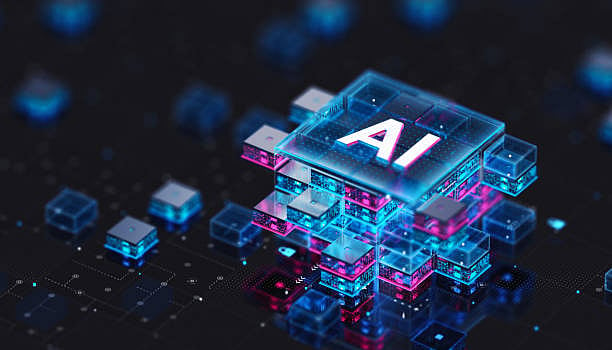
Image for representational purposes.
Credit: iStock Photo
Mumbai: Even as AI is the buzzword across boardrooms in India, but true transformation is still taking shape with 45 per cent of Indian firms still at the early stage of adoption, a report said on Wednesday.
While most organisations have embarked on their AI journey, many remain stuck in the early stages compared to global markets, which are in more advanced stages of AI adoption, payroll and HR platform Deel said in a report - AI at Work: The Role of AI in the Global Workforce.
About 45 per cent of Indian firms are at the early stage of adoption, 38 per cent at the intermediate stage, and only 17 per cent at an advanced stage where AI is embedded in core business processes and innovation, revealed the report.
The AI at Work: The Role of AI in the Global Workforce report by Deel is based on a survey conducted in September among 5,500 business leaders in 22 markets across the globe, including in India across sectors..
The report further revealed that while AI adoption is gaining momentum, only 54 per cent of Indian organisations have formal reskilling programs in place, compared to 67 per cent globally.
This points to a widening gap between technological advancement and workforce preparedness, underscoring the urgent need for structured, future-focused learning, added the report.
Across HR functions in India, AI is most widely used in talent management (66 per cent) and talent acquisition (57 per cent), said the report.
However, as AI takes over repetitive and knowledge-based tasks, organisations face new challenges in talent development, workforce integration, and leadership pipelines, it stated.
"AI is no longer emerging, it's fully here. It's reshaping how we work and how businesses operate. Entry-level jobs are changing, and the skills companies look for are too. Both workers and businesses need to adapt quickly. This isn't about staying competitive, it's about staying viable," said Nick Catino, Global Head of Policy at Deel.
The report found that AI's influence is prompting a widespread workforce redesign as globally 91 per cent of organisations have experienced role changes or displacement, with one-third (34 per cent) undergoing significant restructuring to integrate AI.
In India, nearly half (43 per cent) companies say job roles are being significantly or fully redesigned across departments, reflecting how responsibilities, skills, and workflows are being reshaped to integrate AI into daily operations.
About 70 per cent of Indian organisations expect AI to reduce entry-level hiring within the next 1-3 years.
When hiring entry-level talent, Indian employers now prioritise technical certifications (66 per cent), problem-solving (58 per cent), and communication skills (52 per cent) over academic degrees.
However, only 5 per cent of organisations cite tertiary education as a top hiring criterion, added the report.
Meanwhile, the report also found that India lags in reskilling with only 54 per cent reporting steady investment in reskilling, lowest amongst the countries surveyed versus leading countries like Canada (77 per cent), Brazil (76 per cent), and Singapore (74 per cent).
While 45 per cent of Indian organisations have not started any reskilling effort, they are planning to do so in the next 12 months, it said.
The lag in reskilling is widening India's AI talent gap despite a large tech workforce, 63 per cent of organisations struggling to hire qualified AI talent, and 61 per cent say role awareness is low, added the report.